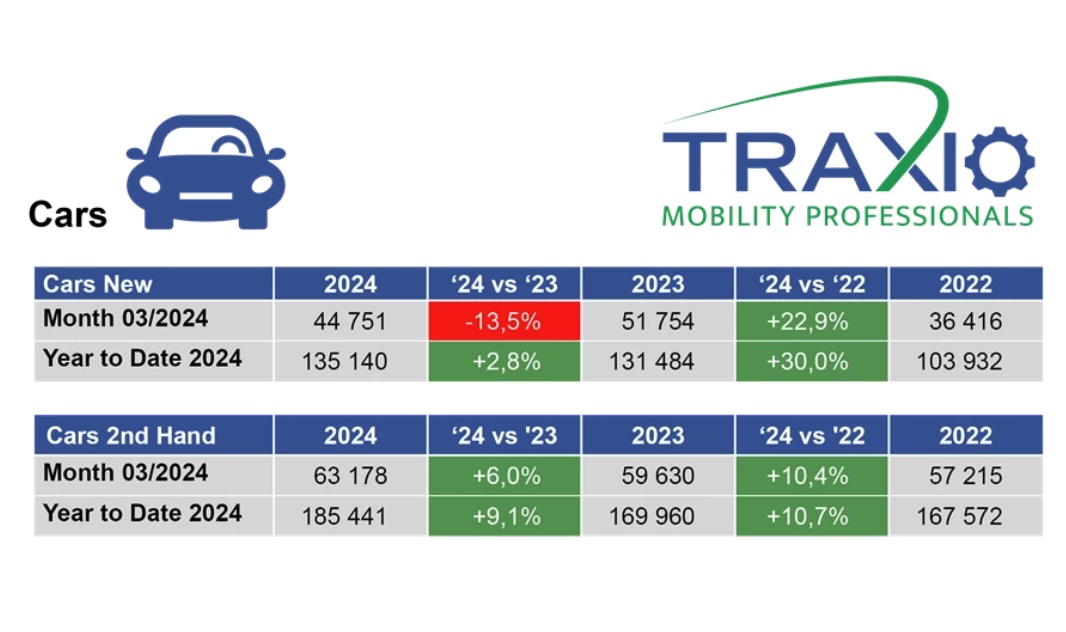
Traxio: ‘9% more used car registrations in Q1 in Belgium’

Registrations of electric cars during the first quarter of 2024 /traxio.be
The number of second-hand car registrations in the first quarter of 2024 increased by 9% (+15,481 vehicles) compared to last year. Registrat


Comments
Ready to join the conversation?
You must be an active subscriber to leave a comment.
Subscribe Today